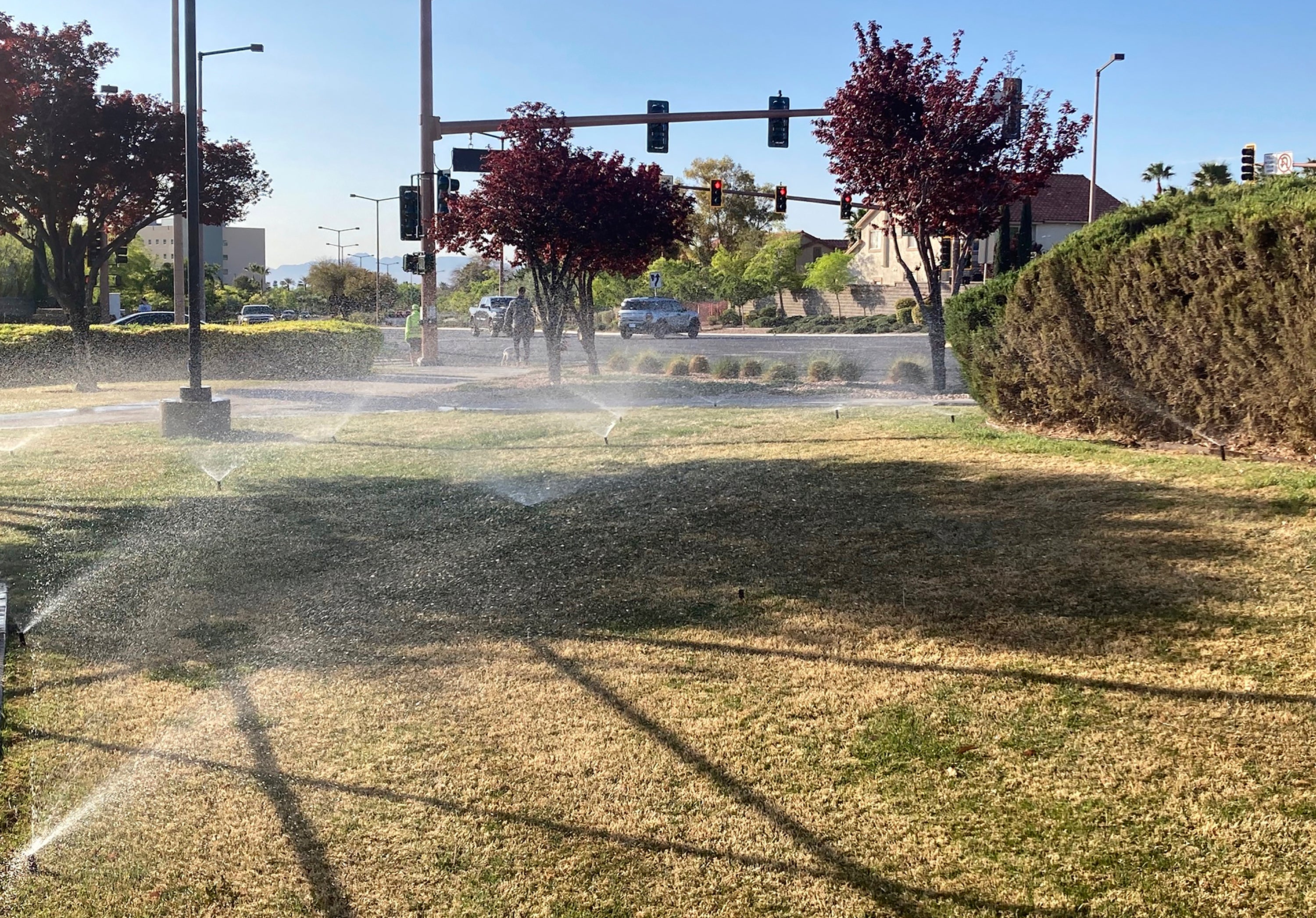Las Vegas to ban ‘non-functional’ grass in bid to save water
Officials estimate that removing this grass could reduce annual water consumption of the region by about 15%

Officials in Las Vegas have asked the Nevada legislature to ban “non-functional” grass — turf on public land that nobody walks on — in an effort to conserve water.
The Southern Nevada Water Authority estimated that there is almost 21 square kilometres of “non-functional turf” in the Las Vegas metro area. It is the grass between roads and sidewalks, and the decorative grass in housing developments and office parks.
The authority said this ornamental grass requires four times as much water as drought-tolerant landscaping like cactus, according to the Associated Press. Officials estimate that removing this grass could reduce the annual water consumption of the region by about 15 per cent and save about 14 gallons (53 litres) per person per day.
Last year, Las Vegas went without rainfall for a record 240 days. The dry streak began in April and only ended in December 2020 when rain showers swept through Southern Nevada.
In Las Vegas, 90 per cent of the water supply comes from the Colorado River. The supply from the river is in question as research showed it could lose about a quarter of its flow by 2050 due to climate change.
The Colorado River provides water to Arizona, California, Colorado, Utah, Nevada, New Mexico, Wyoming and Mexico. In 2019, as the water levels receded in Lake Mead and Lake Powell, Arizona, Nevada and Mexico began taking less water from the river to reduce the risk of the reservoirs falling to dangerously low levels, according to USA Today.
Justin Jones, a Clark County commissioner who serves on the water authority’s board, told the Associated Press that they are “not coming after your average homeowner’s backyard,” but grass in the middle of a road where no one walks.
The Center for Biological Diversity has backed the idea, saying it is the “kind of bold thinking needed to avoid disaster.”
Subscribe to Independent Premium to bookmark this article
Want to bookmark your favourite articles and stories to read or reference later? Start your Independent Premium subscription today.

Join our commenting forum
Join thought-provoking conversations, follow other Independent readers and see their replies